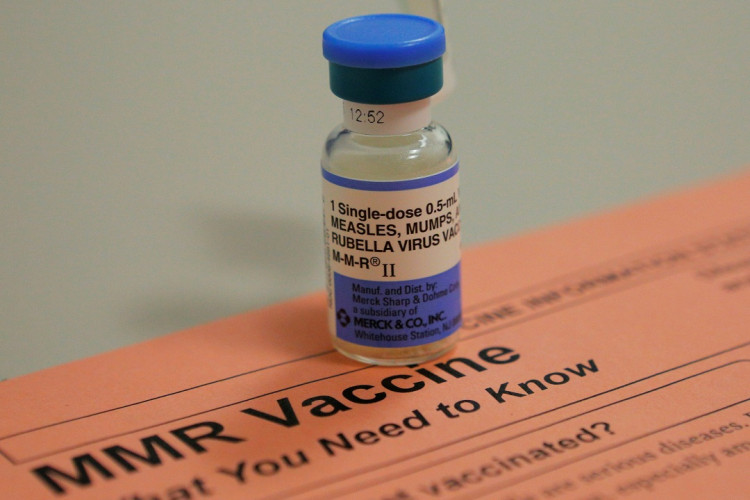The US Centers for Disease Control and Prevention (CDC) has issued a health alert to doctors, warning of the dramatic rise in measles cases both in the United States and globally. In light of the upcoming busy spring and summer travel season, the CDC is advising families traveling to measles-affected countries to vaccinate babies as young as 6 months before their trips, ahead of the typical vaccination schedule.
Many popular tourist destinations, such as Austria, the Philippines, Romania, and the United Kingdom, are currently experiencing measles outbreaks, prompting the CDC's warning. Dr. Nirav Shah, CDC's principal deputy director, expressed concern over lagging vaccination rates in 36 US states, where fewer than 95% of kindergarteners have been vaccinated against measles, falling below the herd immunity threshold necessary to prevent the spread of the infection through the community.
"For vaccinated individuals ... the likelihood of contracting measles is thankfully not what it was in days gone by because the vaccination rates are high," Shah said. "That said, we are concerned that vaccination rates have fallen just a little bit from 95% to 93%." While a two percentage point drop may seem insignificant, Shah noted that it represents about 250,000 unprotected kindergarteners across the population.
The measles vaccine is considered one of the most protective, with two doses being about 97% effective at preventing infection and a single dose being about 93% effective. Dr. Jesse Ehrenfeld, president of the American Medical Association, emphasized that "the overwhelming scientific evidence shows that vaccines remain among the most effective and safest intervention to both prevent individual illness and protect the health of the public."
In updated travel guidelines, the CDC recommends that international travelers who are unsure about their vaccination status consult a doctor at least six weeks before their trip to ensure they have sufficient time to be fully immunized. For infants, the CDC advises pushing up the vaccination timeline by a few months to protect those who have no immunity against the highly contagious infection.
Measles virus can linger in the air for two hours after an infected person has passed through a room, and people can also become infected by touching a surface with virus particles and then touching their eyes, nose, or mouth. Approximately 9 out of 10 exposed individuals who lack immunity from previous infection or vaccination will catch the virus themselves.
The CDC reports that 46 countries currently have high numbers of measles cases, spanning Africa, Europe, the Middle East, Asia, and Southeast Asia. While the US has officially eliminated measles as an endemic infection, the nation still sees imported cases every year, usually involving unvaccinated US residents who become infected during international travel. In 2024, the US has already seen 58 measles cases in 17 jurisdictions, matching the total number of cases reported in all of 2023, with some spread locally.
Measles can be severe in all age groups and can lead to serious complications, such as pneumonia and death. Children younger than age 5, adults older than 20 years of age, pregnant women, and people with compromised immune function are more likely to face severe complications.
Many countries have experienced declines in childhood vaccinations, with over 61 million doses of vaccines that protect against measles missed during the Covid-19 pandemic, increasing the risk of measles outbreaks. The World Health Organization's (WHO) European region, which includes parts of Asia, saw a steep rise in measles cases from less than 1,000 in 2022 to more than 30,000 last year. Globally, WHO's most recent data shows that measles cases jumped 18% last year to around 9 million, with measles deaths increasing 43% to about 136,000.
As the world grapples with the resurgence of measles, the CDC's warning serves as a critical reminder of the importance of vaccination in protecting individuals and communities from this highly contagious and potentially severe infection. By encouraging timely vaccination, especially for international travelers, and working to improve vaccination rates, public health officials hope to curb the spread of measles and prevent further outbreaks.






